As the world continues to grapple with climate change and air pollution, the need for cleaner, more sustainable fuel alternatives has become increasingly apparent. One such alternative is Compressed Natural Gas (CNG), which is gaining popularity as a more eco-friendly and cost-effective option compared to petrol.
As of the time of producing this article, petrol pump price skyrocketed from ₦195 to ₦620 within two months in Nigeria, leaving many car owners in a serious dilemma and in dire need of a cheaper fuel to power their vehicles.
In this article, we will explore the advantages of CNG over petrol and why it is a better choice for the environment, your wallet, and overall vehicle performance.
Related: These Are 9 CNG-Powered Cars You Can Buy Right Now And Save Money On Fuel
Environmental Benefits Of CNG
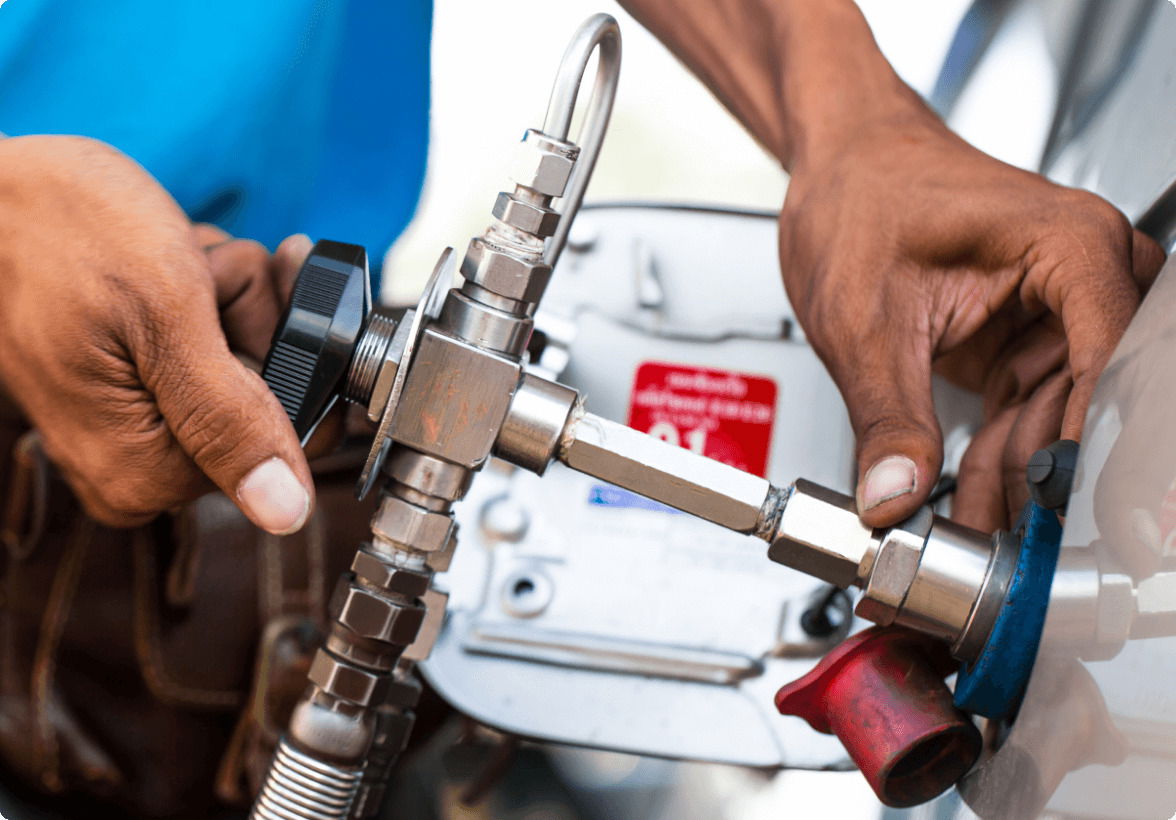
1. Reduced Emissions:
One of the most significant advantages of CNG over petrol is its lower emission levels. CNG produces fewer greenhouse gases, such as carbon dioxide, carbon monoxide, and nitrogen oxides, which contribute to climate change and air pollution.
By switching to CNG, vehicle owners can substantially reduce their carbon footprint.
2. Cleaner Burning:
CNG is recognized as a cleaner-burning fuel, producing fewer harmful particulates and emissions.
The combustion of CNG results in less toxic pollutants, which can significantly improve air quality and public health, particularly in densely populated urban areas.
Cost-Effective Advantages Of CNG
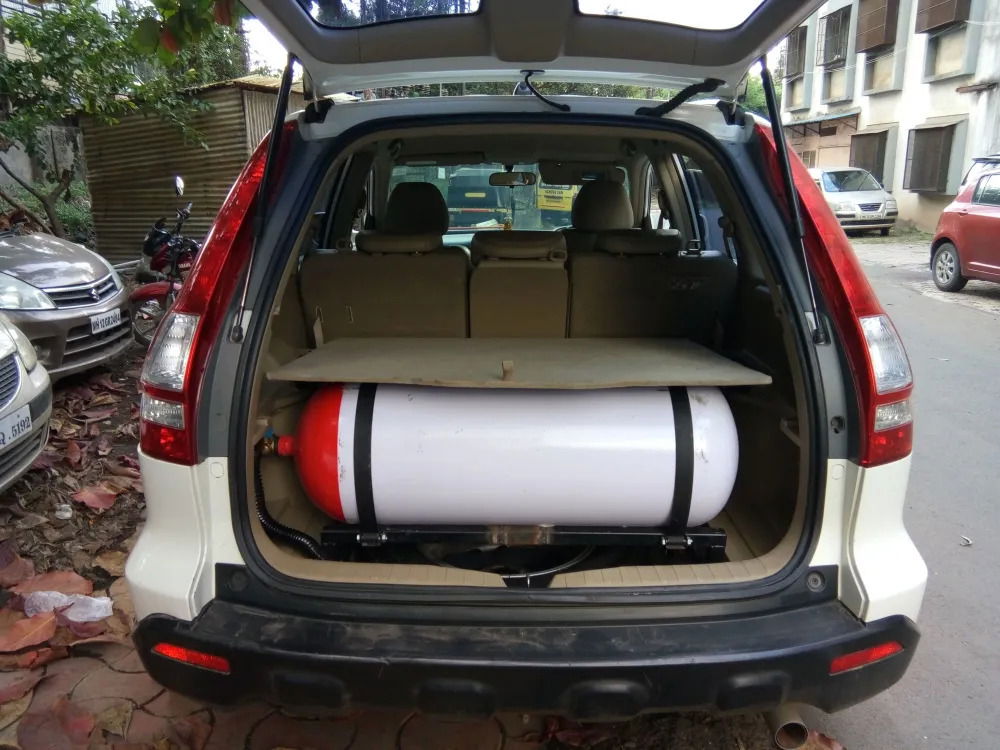
3. Lower Fuel Prices:
In many countries, CNG is priced significantly lower than petrol, making it a more affordable option for vehicle owners.
Governments often provide incentives and tax breaks for CNG adoption, making it even more cost-effective for both businesses and individuals.
4. Improved Fuel Economy:
CNG-powered vehicles often boast better fuel economy than their petrol counterparts.
This increased efficiency means that you can travel longer distances on a single tank of CNG, ultimately saving money on refueling costs.
Performance And Safety Advantages Of CNG
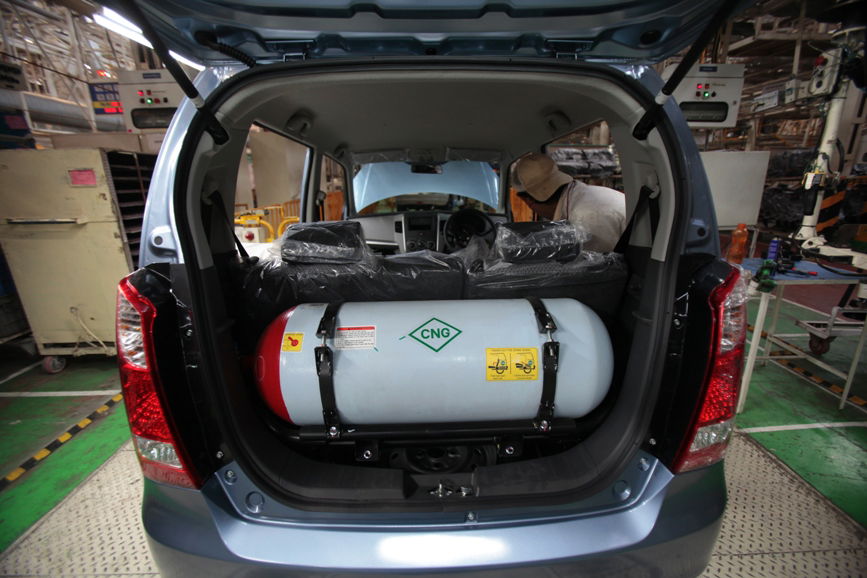
5. Consistent Performance:
Contrary to popular belief, CNG vehicles can deliver comparable performance to petrol-powered cars.
The combustion of CNG is more uniform, and as a result, it can provide consistent power output and smooth engine operation.
6. Safety:
CNG is a safer fuel in terms of handling and storage. It is lighter than air and disperses rapidly in the event of a leak, reducing the risk of fire or explosion.
Additionally, CNG storage tanks undergo rigorous testing and are designed to withstand high levels of pressure, making them extremely durable and safe.
Supporting The Adoption Of CNG Infrastructure
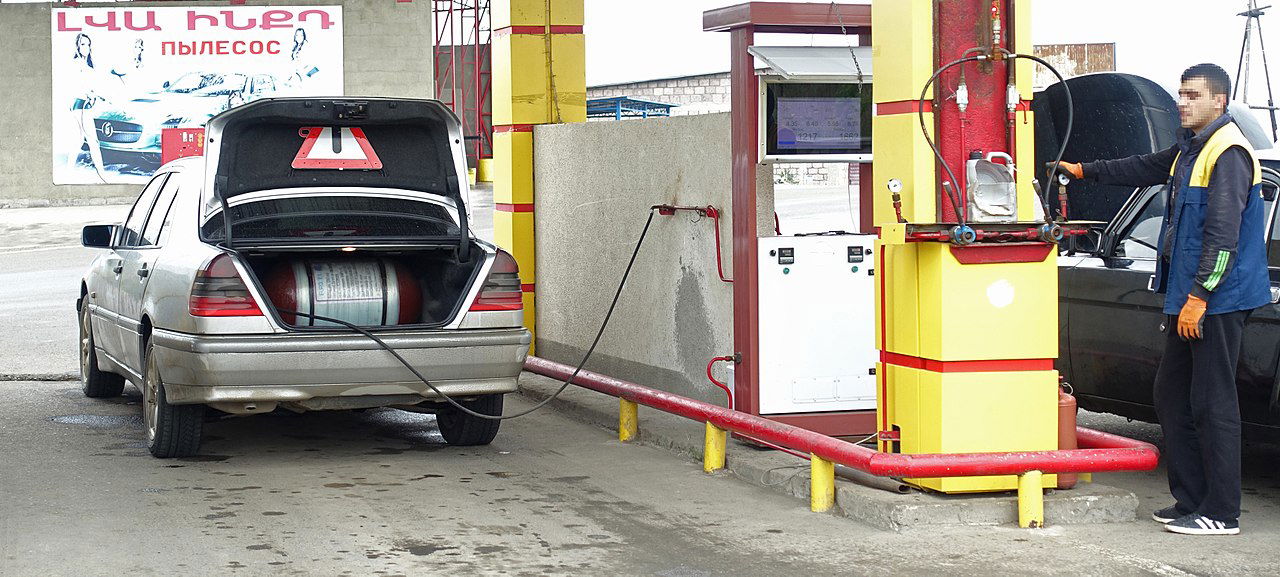
7. Growing Infrastructure:
As the demand for CNG increases, governments and private companies are investing in expanding the CNG infrastructure.
This includes building new CNG refueling stations and retrofitting existing petrol stations to accommodate CNG, making it more accessible for vehicle owners.
Related: The Seven Most Powerful 4-Cylinder Engines And The Cars Using Them
Which Is Better, CNG Or Petrol?
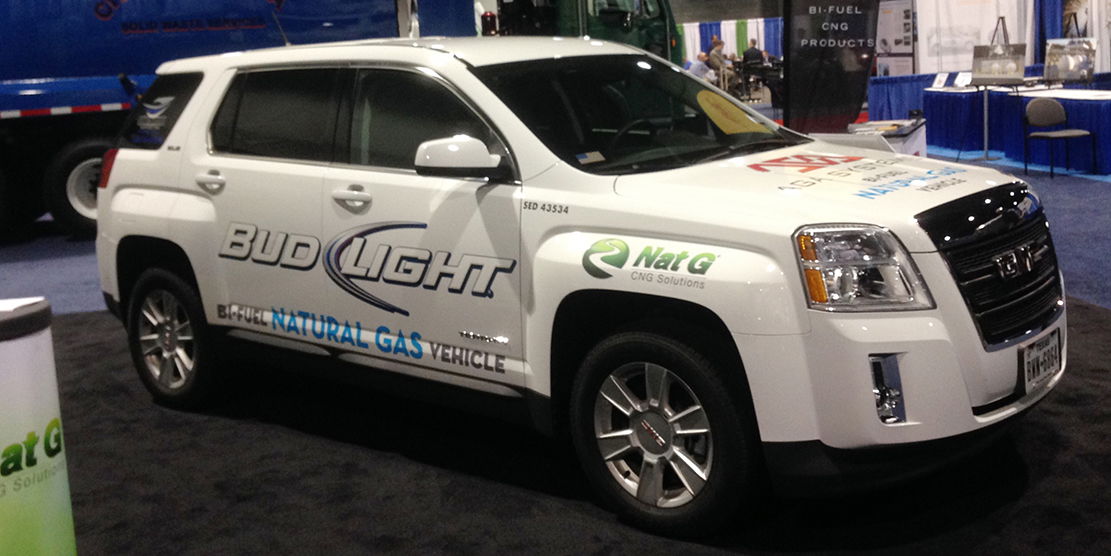
Deciding whether CNG (Compressed Natural Gas) or petrol is better depends on your priorities and needs. Both fuels have their advantages and disadvantages. Here's a comparison of the two:
1. Environmental impact:
CNG is generally considered a more eco-friendly fuel, as it produces fewer greenhouse gas emissions, such as carbon dioxide, and fewer harmful pollutants compared to petrol.
If you prioritize reducing your carbon footprint and improving air quality, CNG may be the better choice.
2. Fuel efficiency and cost:
CNG typically offers better fuel efficiency, meaning you can travel greater distances on a single tank of CNG compared to petrol.
Additionally, in many countries, CNG is priced lower than petrol, making it a more cost-effective option. If saving on fuel costs is a priority, CNG may be the better choice.
3. Vehicle performance:
Petrol-powered vehicles often have better acceleration compared to CNG-powered vehicles. However, CNG vehicles can deliver comparable overall performance to petrol vehicles.
If you prioritize acceleration, petrol may have an edge, but CNG can provide satisfactory performance for most users.
4. Fuel availability and infrastructure:
In many regions, petrol stations are more widespread and readily available compared to CNG refueling stations.
If you live in an area with limited CNG infrastructure, petrol might offer a more convenient choice.
5. Vehicle compatibility and conversion:
Most vehicles come with petrol engines by default, and not all vehicles can be converted to CNG.
If you're considering converting your existing petrol vehicle to CNG, consult a certified CNG conversion specialist to determine if your vehicle is compatible and what the conversion costs would be.
You should also read our comprehensive guide to converting your petrol car to run on CNG.
Summarily, the better choice between CNG and petrol depends on your priorities, such as environmental impact, fuel costs, performance, and availability. If you prioritize a greener and more cost-effective fuel, CNG may be the better option.
However, if you value convenience and acceleration performance, petrol might be the more suitable choice.
What's the difference between LPG and CNG?
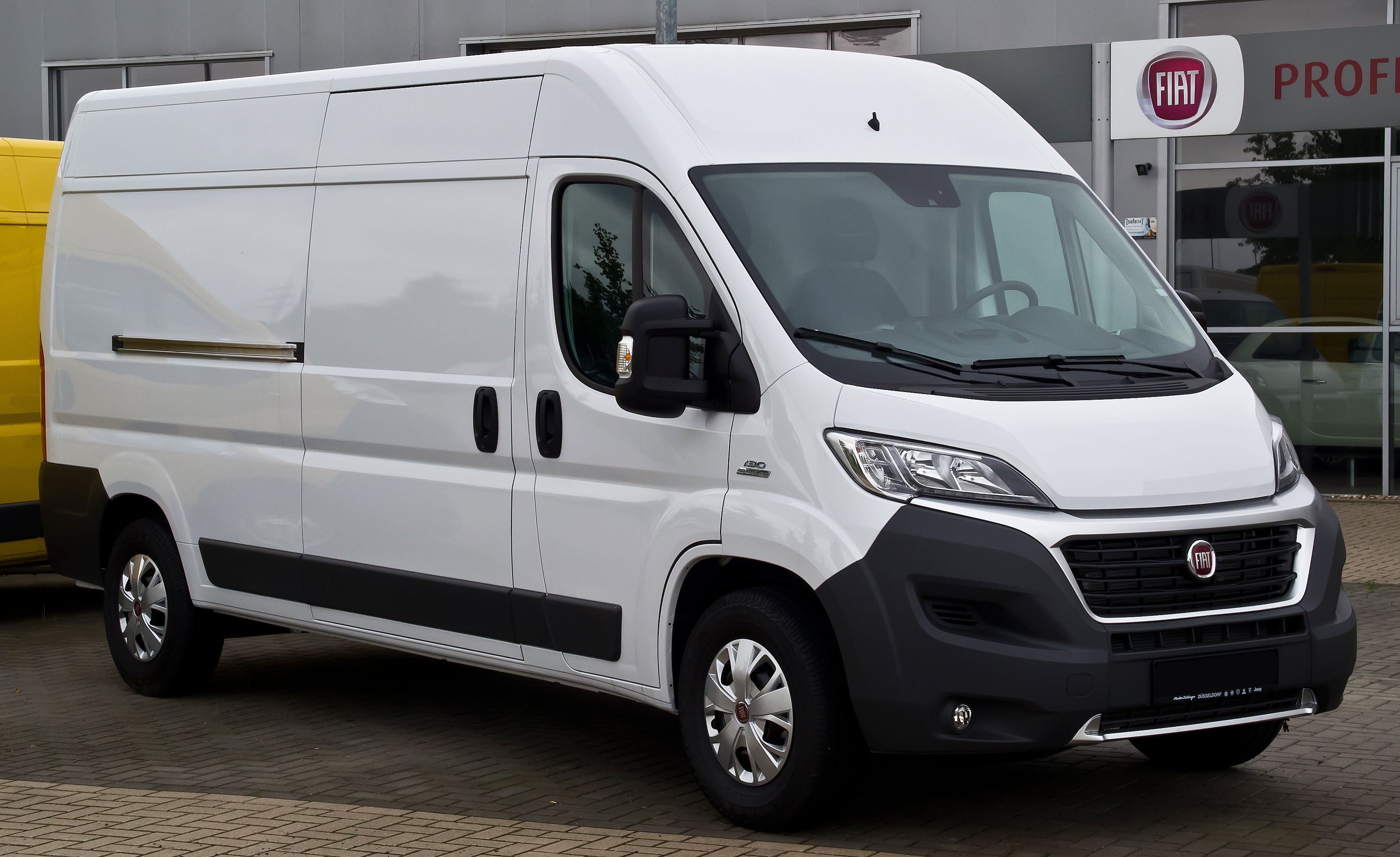
Liquefied Petroleum Gas (LPG) and Compressed Natural Gas (CNG) are both alternative fuels used in vehicles and various applications, but they differ in their composition, properties, and applications.
1. Composition:
LPG is a mixture of hydrocarbon gases, primarily propane and butane, whereas CNG is primarily composed of methane.
Both LPG and CNG are derived from fossil fuels, but LPG is a byproduct of petroleum refining and natural gas processing, while CNG is sourced directly from natural gas.
2. Physical State and Storage:
LPG is stored as a liquid under moderate pressure, whereas CNG is stored as a gas compressed at high pressures, typically around 200-250 bar.
Due to their differing states, LPG storage tanks are usually heavier and bulkier than CNG storage tanks.
3. Energy Content:
CNG has a higher energy content compared to LPG. As a result, CNG-powered vehicles may offer better fuel efficiency and range compared to LPG-powered vehicles.
4. Emissions:
Both LPG and CNG produce fewer emissions than traditional gasoline and diesel fuels.
However, CNG typically generates fewer greenhouse gases, such as carbon dioxide and nitrogen oxides, and has a lower carbon content, making it a cleaner-burning fuel compared to LPG.
5. Applications:
LPG is used more widely for residential and commercial purposes, such as heating, cooking, and water heating, in addition to its use in vehicles.
CNG, on the other hand, is primarily used as a transportation fuel in cars, buses, and trucks. However, it can also be used in some industrial applications.
6. Infrastructure and Availability:
LPG has a more extensive distribution network and infrastructure compared to CNG. LPG refueling stations are more common in many countries, while CNG refueling infrastructure is still growing.
However, CNG adoption is increasing rapidly, particularly in countries with abundant natural gas reserves.
Summarily, LPG and CNG are both alternative fuels with various advantages over traditional gasoline and diesel. However, they differ in their composition, properties, and applications.
CNG is considered a cleaner and more eco-friendly fuel, while LPG has broader applications and a more established infrastructure.
Does CNG Burn More Efficiently Than Petrol?

Compressed natural gas (CNG) generally burns more efficiently than petrol, resulting in lower fuel consumption and emissions.
This is because CNG has a higher octane rating than petrol, which means it can be compressed more without pre-ignition.
As a result, CNG burns more completely in an engine, leading to higher thermal efficiency and lower emissions of pollutants such as carbon monoxide, nitrogen oxides, and particulate matter.
Additionally, CNG is a cleaner-burning fuel than petrol, producing significantly lower levels of carbon dioxide (CO2) and other greenhouse gases. This makes CNG a popular choice for vehicles in many countries with strong environmental regulations.
However, note that the efficiency of CNG depends on the specific engine and vehicle being used.
Some engines may require modifications to run on CNG, and the overall efficiency and emissions performance can be affected by factors such as engine design, vehicle weight, driving conditions, and maintenance practices.
What Is The Cost Of Converting A Petrol Car To CNG Car In Nigeria?
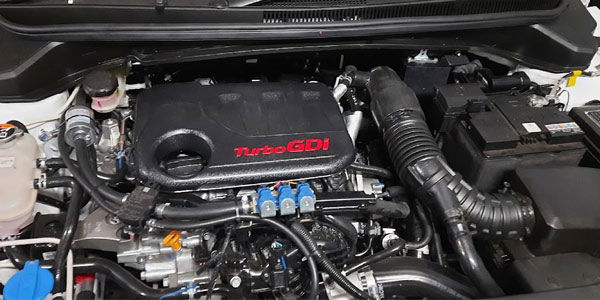
On average, the cost of converting a petrol car to run on CNG in Nigeria ranges from 200,000 to 400,000 Naira (approximately $250 to $500 at $799.50/₦).
Note that the cost of converting a petrol car to a CNG car in Nigeria can vary depending on several factors, including the type of vehicle, the CNG conversion kit being used, and the installer's labor fees.
It is essential to note that these prices are subject to change due to factors such as currency fluctuations, changes in the cost of CNG conversion kits, and changes in labor costs.
Additionally, it is crucial to choose a reputable and certified installer for the conversion to ensure that the conversion is done correctly and safely and that the vehicle remains compliant with local regulations.
How Much Is CNG In Nigeria?
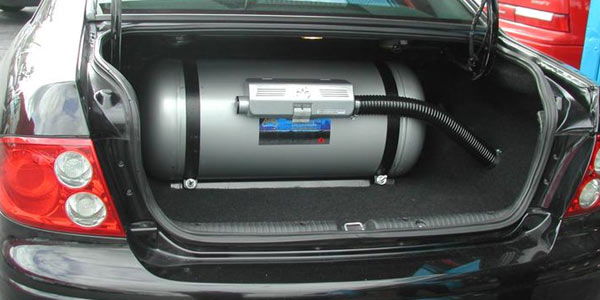
Compressed natural gas (CNG) will sell for around ₦100 to ₦110 in Nigeria, according to IPMAN’s national president Chinedu Okonkwo during a chat with Channels TV Business Morning program on June 12.
IPMAN is short for Independent Petroleum Marketers Association of Nigeria. Okonkwo added that the Association is committed to rolling out CNG as a cheaper alternative to petrol, now selling at ₦617 per liter as at press time.
Furthermore, the Nigerian Independent Petroleum Company PLC (NIPCO) says it has converted over 5,000 vehicles to run on compressed natural gas since 2009.
The company’s Managing Director Mr. Sanjay Teotia made this revelation at the 11th International Conference and Exhibition of the Nigerian Gas Association (NGA) in Abuja. “We have inaugurated nine CNG stations and a compression station to aid natural gas access and utilization across the country,” he said.
Teotia also disclosed that the conversions were carried out at the company’s workshops in Benin, Edo State and Ibafo, Ogun State.
Final Word On The Advantages Of CNG Over Petrol
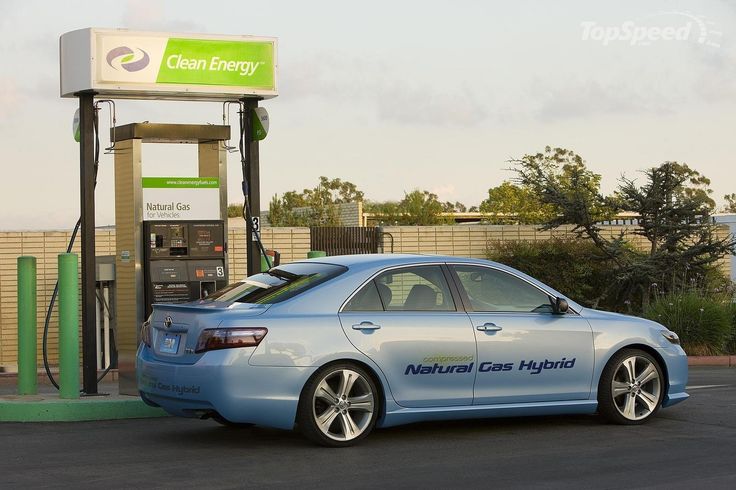
The numerous advantages of CNG over petrol make it an ideal choice for those looking to switch to a more eco-friendly and cost-effective fuel source.
By choosing CNG, you can contribute to the global effort to combat climate change, reduce air pollution, and promote a more sustainable future.
It will become easier to make the switch and reap the benefits of this cleaner, greener fuel alternative as CNG infrastructure continues to grow.